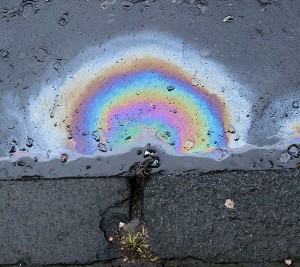Connecting the Web
Meeting the Real Planetary Crisis
by Jan Lundberg
Anyone paying attention to the world today encounters shocking, saddening alerts. But these don’t bring on a strong enough sense of  alarm to all humanity. The sense is getting stronger, but it seems that revolts are not rising fast enough to steer events. Particularly in the U.S., we let events overtake us. Perhaps the alarms and outrages are most easily appreciated by traditional peoples close to the land and seas.
alarm to all humanity. The sense is getting stronger, but it seems that revolts are not rising fast enough to steer events. Particularly in the U.S., we let events overtake us. Perhaps the alarms and outrages are most easily appreciated by traditional peoples close to the land and seas.
A new report estimates that a least twenty percent of all known mammals are nearing extinction, with large species at greatest risk. By many indicators, our life-support system is short-circuiting or burning out, and it makes the news often enough to alert everyone who’s not sleepwalking. Somehow this news pales for the average person compared to stresses over job-search or overworking. But when not working or looking for work, somehow it’s the shortsighted shopping — instead of gardening or bartering — and inverted consumerist entertainment, via isolating techno-toys, that represent prevailing “success” or “security.” “Experts” and scam artists freely mislead, or they get away with trying to.
Not enough hearts and minds understand that the world is undergoing a massive ecological crisis. But whenever they do, they prefer to count it as only one of many symptomatic crises, such as tough economic times. Then their “solutions” may lack an ecological foundation and are thus doomed to fail. When we stop our worrying and scurrying through today’s problems for a moment, we see that the problems all fall into either human misery and confusion, or “the environment.”
But the environment, or the ecosystem, is everything — a scientific fact. Everything about our lives flows from the ecosystem. Putting “the economy” ahead of it is impossible, or if it’s attempted, the only way out of it is to ultimately shoot oneself in the foot. But when we put ecology first we secure our future, allowing a chance for related and “unrelated” problems to be sorted out.
Having one’s finger on the pulse of all humanity may be hit and miss, but it is safe to say that most of the world understands that there are mounting problems causing visible harm to many people. The trouble is that certain challenges that a threatened population face may seem limited to crimes or schemes by a certain group of people, or traced to modern ways that undermine traditions. That can be a healthy analysis, but it must translate to concerted action for any positive outcome.
While it is true that crises such as war, corporatism, population/migration pressures and lack of education can each be accurately identified separately as many peoples’ main problem — and they feel it is true as they fight their particular problem — the basic breakdown of society proceeds most deeply at the web-of-life level. If each problem is given its equal due, and the ecological issue is seen as just one, then our future is lost. So we must imagine how all problems will be dealt with successfully if only people put honoring the web of life first. Let us see how:
- Connect daily with the Earth, her land and waters and air, in a healing way for your body, mind and spirit. In this way you will help heal the Earth, for we are the Earth and the Earth is us. When either the Earth or a person needs healing, there is balancing at work and there can be successful, symbiotic change or great loss.
- See all threats as ecological, even if seemingly unrelated. Look for the connections: is someone acting out of desperation or a sense of material insecurity when oppressing someone else? Could it be that overcrowding and dwindling resources are influencing and exacerbating behavior?
- Don’t spend all your energy coping with problems that may be symptoms, while failing to work at all on the ecological imbalance spawning manifestations of system breakdown.
- If children are brought up and instructed that problems in the world have to do with not honoring nature and her creatures, and if they also honor the diversity of humanity, they will grow up differently as an improvement over their parents and teachers.
The problem that threatens the ecosystem? It’s the economy. The present global corporate economy is all wrong. Even the small market economy is wrong, because it led to this distortion of humanity and destruction of the Earth. For people to create a “separate” economy from our private lives, to charge for food and materials we all need for shelter and clothing, is the biggest mistake humanity may have ever made.
Solutions and improvements are many, but our hands are probably tied as long as there is ample petroleum and a market economy. Collapse may be our best friend, although it would be heartless to wish for chaotic, painful breakdown. All we can do is our best, and remember that solidarity and cooperation are more productive than competition — a scientific fact that happens to be our species’ real history over hundreds of thousands of years.
Jan Lundberg is the founder of Culture Change, and was an oil industry analyst at Lundberg Survey before joining the grassroots environmental movement in 1988. This article originally appeared on Culture Change, and is reprinted here by permission.
